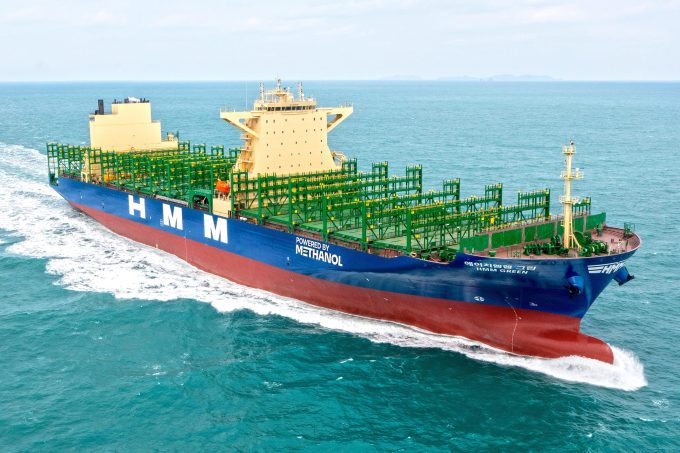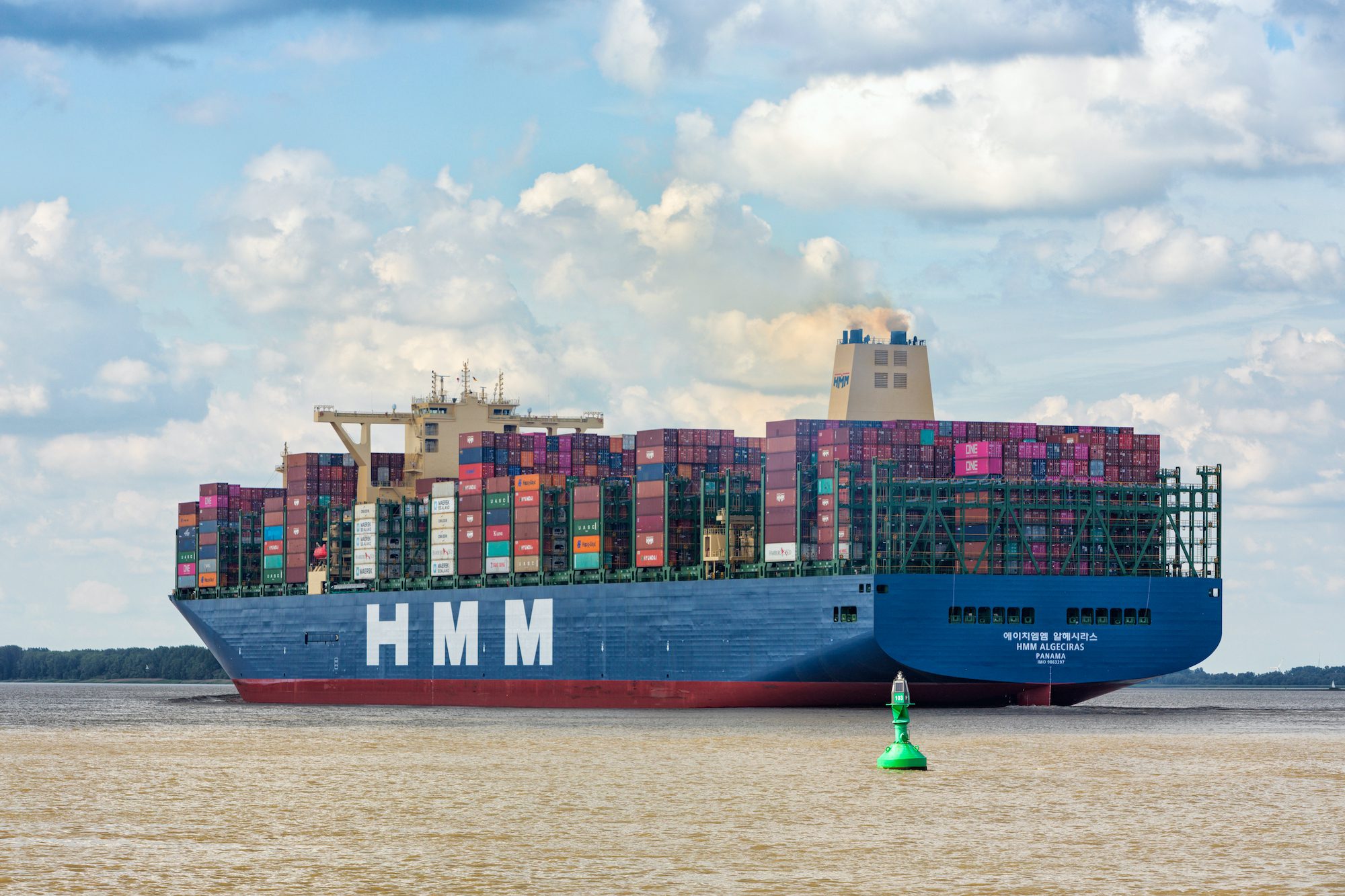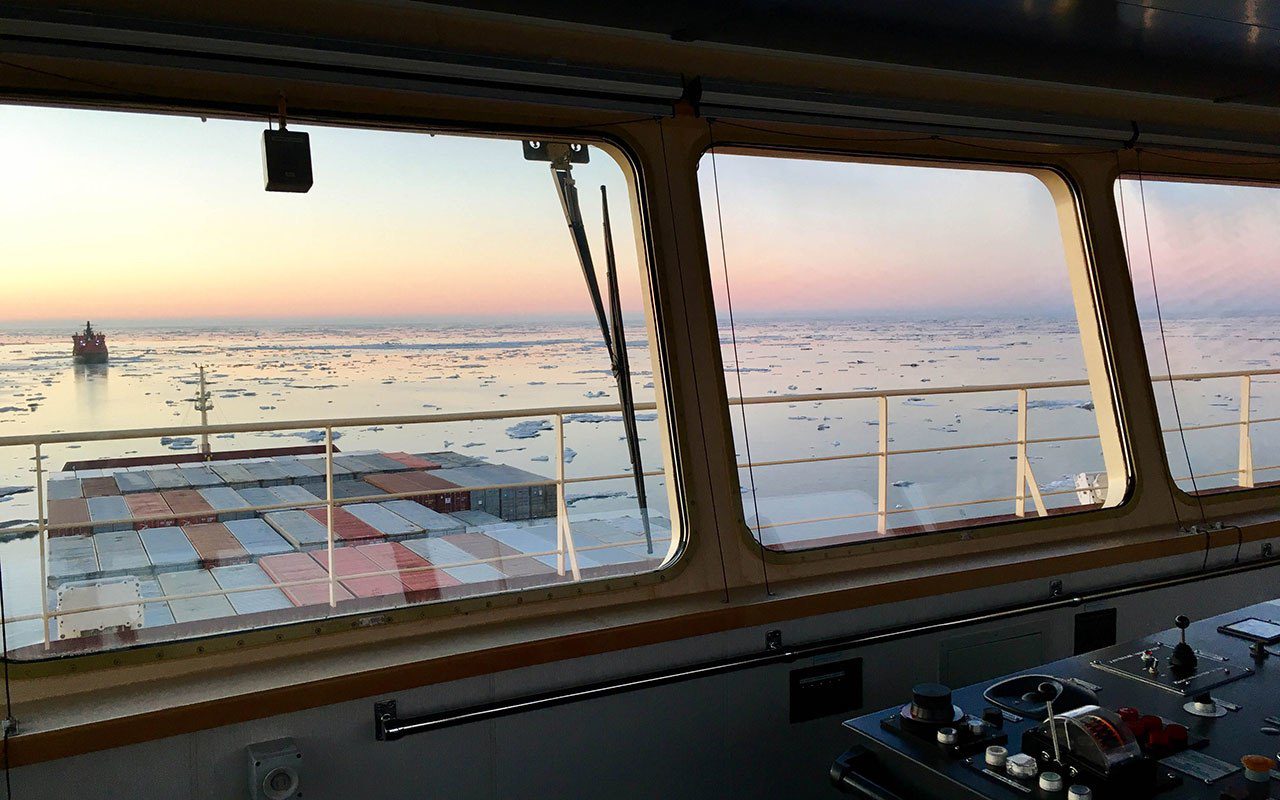By Charlie Bartlett (The Loadstar) –
South Korean shipping line HMM has taken delivery of the HMM Green (above), the first in a series of nine 9,000 teu methanol-fuelled containerships being built at Korean yards.
Ordered in 2023, seven are being constructed at HD Hyundai Samho, the other two at HJ Shipbuilding & Construction.
HMM Green will bunker its bio-methanol at the port of Shanghai, HMM said, where Shanghai International Port Group (SIPG) operates the 16,000 cu meter methanol bunkering vessel Hai Gang Zhi Yuan, a former chemical tanker converted last year.
Though HMM’s first methanol-powered box ship has been assigned to a rotation between the Far East, India, and the Mediterranean, the carrier might be considering deploying it, or one of its sister vessels, on a Far-East-US loop in due course.
Hyundai’s shipping arm does operate Chinese-built vessels, including car-carriers and heavylift ships, but its container fleet is Korean-built, meaning that it stands to gain a competitive edge should the US Trade Representative’s proposed anti-China measures be adopted.
In the event of the proposed massive port call fines going through, HMM is potentially an excellent candidate for transiting the Panama Canal, taking advantage of a new service unveiled there this week.
On Monday, the Panama Canal Authority (ACP) announced NetZero Slot, a new measure to incentivise low-carbon shipping by providing one slot a week when a chosen net-zero vessel will be given ‘red carpet’ treatment – a choice of transit date, guaranteed 24-hour in-transit time, and included just-in-time service.
To be eligible for the service, vessels must submit a technology screening report to verify their operators’ green claims.
“The NetZero Slot is part of the authority’s commitment to reward and incentivise investments in energy efficiency and low-carbon fuels,” said Boris Moreno Vásquez, ACP’s VP operations.
“As the shipping industry progresses toward net-zero emissions, we will continuously update the eligibility criteria to recognise and support these efforts.”
The bio-methanol bunkered in Shanghai can achieve a 65% reduction in CO2 emissions in operation compared with conventional fossil fuels, claims HMM.
CIMC ENRIC, which formed a strategic partnership with Mærsk in early 2022, established a 50,000 tonnes-a-year bio-methanol facility in 2024, which combines methane generated from agricultural waste with renewable energy.
The company aims to expand production to 200,000 tonnes a year, and recently won a bid to develop equipment for a Chinese green hydrogen-ammonia-methanol mega-project, the Songyuan Hydrogen Energy Industrial Park in Jilin Province.
Another company to partner with Mærsk, Green Technology Bank, is aiming to increase bio-methanol production to 300,000 tonnes a year.
The Loadstar is known at the highest levels of logistics and supply chain management as one of the best sources of influential analysis and commentary.
Editorial Standards · Corrections · About gCaptain

 Join The Club
Join The Club











